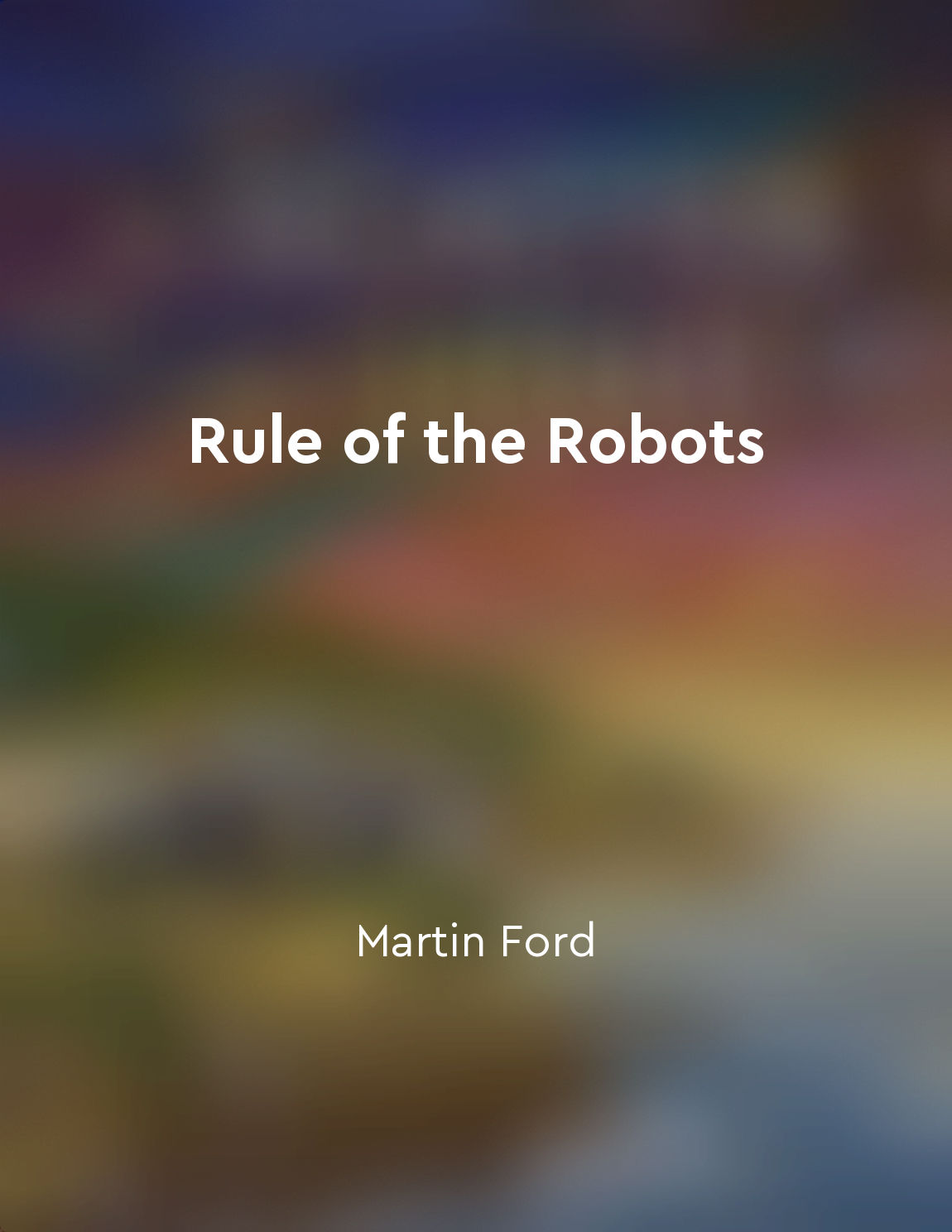The rise of automation raises questions about the future of work from "summary" of Program Or Be Programmed by Douglas Rushkoff
The accelerating pace of automation is leading many to question the very nature of work itself. As machines take on more and more tasks traditionally performed by humans, we are forced to confront the possibility of a future where human labor is no longer a valuable commodity. The rise of automation challenges our assumptions about the role of work in society and raises fundamental questions about the meaning and purpose of human existence. In a world where machines can perform tasks more efficiently and cost-effectively than humans, what will become of the millions of people whose livelihoods depend on their ability to work? Will we see mass unemployment and widespread poverty, or will we find new ways to create value and meaning in a society increasingly dominated by automation? These are the questions that we must grapple with as we navigate the uncertain terrain of the digital age. The rise of automation also raises ethical questions about the impact of technology on society. As machines become increasingly sophisticated, we must consider the implications of entrusting important decisions to algorithms and artificial intelligence. Will we be able to retain control over these systems, or will they ultimately dictate the course of human civilization? The rise of automation forces us to confront the power dynamics inherent in our increasingly technologically mediated world. At the same time, the rise of automation offers new opportunities for creativity and innovation. As machines take on more routine tasks, humans are freed up to pursue more meaningful and fulfilling work. The challenge lies in harnessing the potential of automation to enhance human capabilities rather than replace them. We must find ways to leverage automation to create a more equitable and sustainable future for all.- The rise of automation forces us to rethink our assumptions about work, technology, and society. Instead of resisting change, we must embrace the potential of automation to reshape the way we live and work. By grappling with the ethical, social, and economic implications of automation, we can build a future that empowers all members of society to thrive in a rapidly changing world.
Similar Posts

Bias in AI algorithms can have harmful consequences
Bias in AI algorithms can have harmful consequences that extend beyond mere inconvenience or annoyance. Such consequences are s...
Automation is changing the workforce
In the modern world, the impact of automation on the workforce cannot be overstated. As technology advances at a rapid pace, jo...

Agricultural revolution led to social stratification
The Agricultural Revolution was a turning point in the history of humankind. It transformed societies from small, egalitarian g...

The role of government in addressing job displacement is a topic of debate
The idea of the government's involvement in managing the impact of automation on jobs is a contentious issue. Some argue that t...
Economic inequality is a growing concern
The rapid advancement of technology has brought about significant changes in our economy, leading to a staggering increase in e...
Creativity enhanced by algorithms
Algorithms have long been associated with logic and efficiency, but their role in creativity is often overlooked. However, algo...
AI has the potential to create massive wealth and disrupt traditional industries
Artificial intelligence stands at the forefront of a technological revolution that has the power to reshape industries and econ...
Sentient machines can improve decisionmaking processes
Sentient machines have the potential to revolutionize decision-making processes in ways that were previously unimaginable. By h...
Algorithms predicting hit songs
The music industry has always been a realm of uncertainty, where talent and luck seem to play equally crucial roles in determin...
Worklife balance is crucial in the digital era
Work-life balance has become increasingly important in today's digital era. With the rise of technology and automation, people ...


